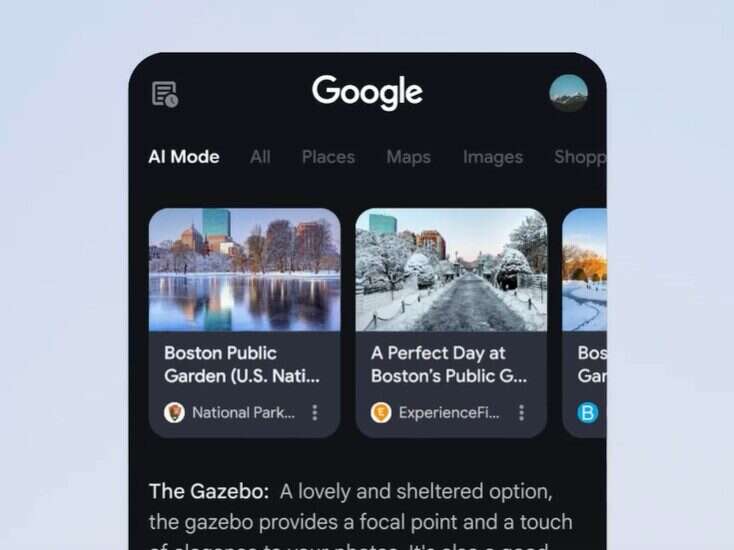
Google wants to prove that news is worthless to them. Their recent experiment purporting to do so has been met with deserved scorn and scepticism.
The fact they did it begs another question: what is Google worth to news?
The news industry behaves as if it is utterly dependent on Google. I mean dependent in the same way as some people become dependent on drugs. Even when their health and life are under threat, they can’t stop taking it, can’t imagine coping without it.
Doesn’t the news industry’s dependence on Google feel a bit like that?
The era of Google’s dominance in search and advertising hasn’t been one in which the news sector has thrived. In fact, it has coincided with a calamitous collapse in revenues and a dramatic contraction of the industry overall. What they’re worth to us has been, overall, less than zero. The news industry has gone backwards.
Yet news businesses still can’t conceive of managing without them. Algorithm tweaks which damage traffic are met with howls of protest and fist-shaking but no real change.
Google traffic remains a central obsession for most news publishers. Google’s advertising ecosystem continues to be a key revenue source even though yields and revenues have been under pressure for decades.
Now Google have come out and said what we have all seen for decades: the value they put on news is zero. AI mania is starting a new round of robbing news publishers of their traffic as well as their content. This is the end-game for the web we have known.
Which means it’s time, finally, to face reality.
If media ever wants to thrive again, it needs to break its dependence on Google, and any other platforms whose incentives are exploitative, not collaborative.
It will be a hard habit to kick. Unimaginable for many. But loss of their traffic and ad revenue is going to accelerate, whatever we do.
News publishers need to wean themselves off their dependence, pretty fast. Which is good news, because the one motivation which works better than any other for the news media is a sense of urgency.
What needs to happen is also fairly obvious: other sources of traffic and revenue need to be found and scaled, so that – even if it stays exactly the same – Google accounts for less of our totals.
How?
News needs a support network: each other, and our users.
Can those users only be found through services like Google, or can publishers find ways to share the ones they already have with each other, and create a discovery network of their own?
Does revenue have to be so dependent on advertising, or can consumer payment become a more widespread and less elitest model?
When it comes to that second question, I have an interest to declare having founded a platform to enable shared sign-in and casual payment for media companies. It’s really hard to cooperate if you’re competing for a limited pool of potential subscribers. It’s a lot easier if your opportunity is a much larger pool of customers who can spontaneously buy anything which catches their eye.
The great benefit of this is that revenue can be driven by the same user making multiple purchases. If an individual can buy multiple media products, with a single log-in and without having to commit to multiple future purchases, we can make money the old-fashioned way: by making people want to come back again and again.
If we can help each other make money, without losing any opportunity for ourselves, by directing them to things they are looking for or might find interesting, we can reduce our reliance on big platforms for visibility and discovery.
When that happens, our products can start to evolve to meet user, rather than algorithm, needs. We can only sell something which people want to buy, after all.
The more we can grow our own network, the more we can develop products and experiences which are worth a few pence, or more, to increasing numbers of users. The less, then, we will rely on others – who are withdrawing from us anyway.
In this way we can return to the only way the media business has ever been able to thrive.
First, it needs to be able to command people’s attention.
Second, it needs to have reliable ways of converting attention to money.
In the Google era we have been losing at both, and withering away as a result. But we still have what we need to reverse that, and they’re handing us our motivation on a plate.
Email pged@pressgazette.co.uk to point out mistakes, provide story tips or send in a letter for publication on our "Letters Page" blog
